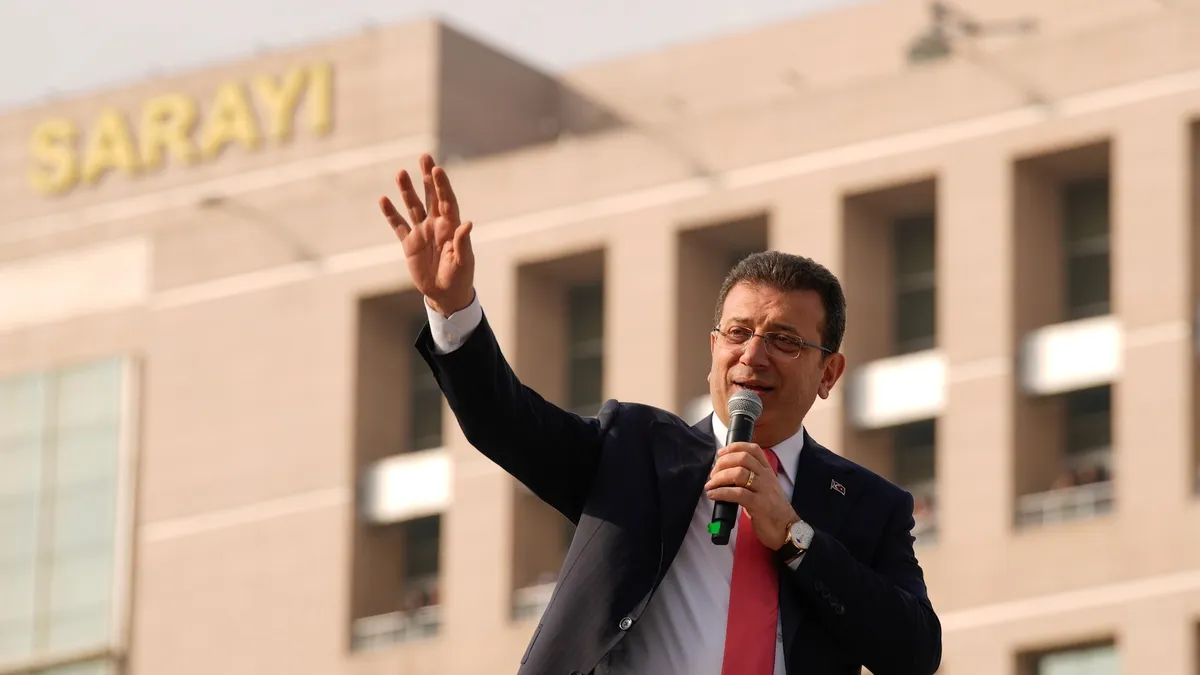
On Sunday, a court in Istanbul formally arrested Ekrem Imamoglu, the mayor of Istanbul and a prominent challenger to President Recep Tayyip Erdogan. The court ordered his detention pending a trial on serious corruption charges. Imamoglu's arrest followed a raid on his residence earlier in the week, leading to widespread protests—the largest in Turkey in over a decade. This incident has heightened fears regarding the state of democracy and the rule of law in Turkey.
The imprisonment of Ekrem Imamoglu is widely viewed as a calculated political maneuver aimed at eliminating a key contender for the upcoming presidential elections scheduled for 2028. Government officials have denied allegations that the legal actions against opposition figures are politically motivated, asserting that Turkey’s judiciary operates independently. However, the timing of the arrest raises significant questions about the integrity of the legal process.
In a show of solidarity, over 1.5 million members of the Republican People’s Party (CHP) initiated a primary presidential election to endorse Imamoglu as their candidate. As the only candidate, this primary, announced last month, served mostly as a symbolic gesture of support. Additionally, the CHP established solidarity boxes across the nation, allowing non-party members to express their backing for the mayor.
Ankara Mayor Mansur Yavas, a fellow CHP member, publicly criticized the ongoing legal proceedings, stating, “Honestly, we are embarrassed in the name of our legal system.” He highlighted the lack of confidentiality in the case, noting that details were learned through media rather than legal channels. His comments underscore the perception that the actions against Imamoglu are politically charged.
The decision to detain Imamoglu has drawn international criticism. Marc Cools, head of the Council of Europe’s congress of local authorities, expressed disapproval, stating, “We deplore the decision to place Mayor of Istanbul Ekrem Imamoglu in detention, and demand his immediate release.” This reaction indicates growing concern among international bodies regarding Turkey's commitment to human rights and democratic principles.
Imamoglu's legal troubles are not new; he has faced multiple criminal cases that could lead to prison sentences and political disqualification. He is currently appealing a conviction from 2022 for allegedly insulting members of Turkey’s Supreme Electoral Council. Compounding his challenges, a university recently nullified his diploma, claiming irregularities in his academic transfer from a private university in northern Cyprus three decades ago. This decision effectively disqualifies him from running for president, as the role requires candidates to hold a university degree. Imamoglu has vowed to contest this ruling.
Imamoglu first gained prominence in March 2019 when he was elected mayor of Istanbul, marking a significant defeat for Erdogan and his Justice and Development Party, which had maintained control over the city for 25 years. Following allegations of irregularities, Erdogan’s party unsuccessfully attempted to annul the election results, leading to a repeat election that Imamoglu also won. He successfully retained his position in local elections last year, during which the CHP made substantial gains against Erdogan's ruling party.
The ongoing developments surrounding Ekrem Imamoglu not only reflect the current political climate in Turkey but also signal a critical juncture for the country's future democratic processes.